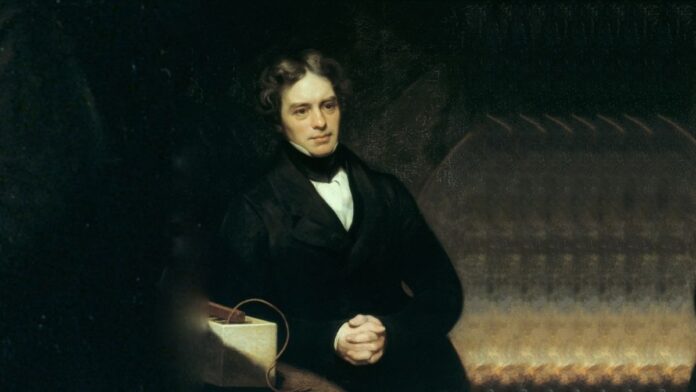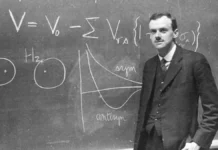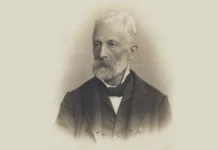
(British Scientist – 1791 – 1867) Science and scientists have simplified our lives. From scientific experiments to inventions, human life became the simplification only because of scientists. One such great scientist in the world of science was Michael Faraday.
Albert Einstein also placed a picture of Faraday on the wall of his study with photographs by Isaac Newton, Gandhi, and James Clarke Maxwell. The physicist Ernest Rutherford used to remember Faraday, saying, “When we consider the amount and extent of their discoveries and their impact on the progress of science and industry, so is honor work in memory of Faraday, one of the greatest scientific explorers of all time.”
Do you know how this is possible with the device in which you are reading it, the sounds you hear, and the pictures you see from it? How do our messages reach the speed of light without interruption? How did this amazing power come to us? This is all the brain of a human being. A child born in poverty with no hope. If this person was not there, then the world we are seeing today is not like this, his inventions changed the world.
- Born – 22 September 1791 Newington Butts, England
- Death – 25 August 1867 (aged 75) Hampton Court, Middlesex, England
- Inventions – Faraday’s law of induction, Electrochemistry, Faraday effect, Faraday cage, Faraday constant, Faraday cup, Faraday’s laws of electrolysis, Faraday paradox, Faraday rotator, Faraday-efficiency effect, Faraday wave, Faraday wheel Lines of force.
- Awards – Royal Medal (1835 and 1846), Copley Medal (1832 and 1838), Rumford Medal (1846), Albert Medal (1866).
Contents
Summary –
A British scientist who contributed to the study of electro-magnetism and electro-chemistry. His main discoveries include electromagnetic induction, diamagnetism, and the principles underlying electrolysis. It was only from his inventions that the Dynamo and electric motor were created. Although Faraday received very little formal education, he was one of the most influential scientists in history. Through his research on the magnetic field around a conductor carrying a direct current, Faraday established the basis for an electromagnetic field in physics. Faraday also established that magnetism can affect light rays and that there was an inherent relationship between the two phenomena.
As a chemist, Faraday discovered benzene, investigated the clathrate hydrate of chlorine, and invented the Bunsen burner’s early form and system of oxidation numbers, and popular terminologies such as anode, cathode, electrode, and ion. Faraday eventually became the first and largest Fulrian professor of chemistry during the lifetime of the Royal Institution.
However, his mathematical abilities did not advance to trigonometry and were limited to the simplest algebra. James Clerk Maxwell took the work of Faraday and others and summarized it into a set of equations, which are accepted as the basis of all modern theories of electromagnetic phenomena. On Faraday’s use of Lines of Force, Maxwell wrote that he shows Faraday “indeed a very high-order mathematician – of whom future mathematicians can obtain valuable methods. SI unit named capacitance in his honour: The Farad. If Michael Faraday had not been there, we would have been living the same way our ancestors lived in the 17th century.
In the period between two great scientists Isaac Newton and Albert Einstein, another great scientist was born, just like the man who settled the secret in which Newton was entangled. Due to that person, Albert Einstein was able to go so far and man has progressed so much.
Albert Einstein placed a portrait of Michael Faraday on the wall of his study, with paintings by Newton and James Clerk Maxwell. Physicist Ernest Rutherford said, “When we consider the amount and extent of their discoveries and their impact on the progress of science and industry, every honour is small in memory of Faraday, one of the greatest scientific explorers.
The Birth of Michael Faraday –
Michael Faraday was born on 22 September 1751 in a dirty slum of Newington Butts, London. He was not very good at his studies. Faraday was from a very poor family, his father James was very poor and worked as a blacksmith, due to his poor family status, Faraday could only do normal schooling.
Life of Michael Faraday –
From the age of 13, he started working as a bookbinder, he used to book books during the day and read them at night, this is where his passion for electricity started, Faraday started his life as a bookbinder in London. Faraday used to read books when he got time During his seven-year apprenticeship, Faraday read several books, including Isaac Watts’s The Improvement of the Mind, and enthusiastically applied the principles and suggestions contained therein to his life. He also developed an interest in science, particularly in electricity. Faraday was particularly inspired by the book on chemistry by Jane Market.
Faraday considered his conservative Christian thinking very much. This always gave him a sense of strength and humility, Faraday, after being 21 years old after working as a bookbinder for many years, saw the idea of going into a big world, and he also got a chance to grow up, when a customer gave him a show ticket. The name of that show was “Science for the Public“.
Michael Faraday and Humphry Davy
The science for the public show began at a royal institution in London. Humphry Davy was the host of the show and was a well-known scientist of the time who had discovered many chemical elements – calcium and sodium. He was also a wonderful showman and he loved the show. The people who were performing Davy’s Electricity in that show liked it very much and the people played applause. But Faraday was not clapping, he was writing a word of Davy’s speech, he used to do bookbinding so he tied it in the shape of a book.
He went on to give this book to Davy in which he wrote Davy’s lectures, thinking that doing so would give him a chance to meet Davy. And in fact, this gift also became the reason to reach a new world. Faraday later sent Davy this 300-page book, based on the notes he took during these lectures. Davy’s answer was immediate, kind, and accommodating.
Beginning and Invention –
When Davy’s eyes were hurt in a chemical experiment, he remembered Faraday, who had written and finely linked every single word of his speech. Davy summons Faraday and hires him as an assistant, soon after Faraday takes over all of Davy’s work, and the job he gets for a few days turns into a confirmed appointment. And the Royal Institution became a home for them.
Faraday used to work with Davy in the lab and in the evening, he came to his small apartment where he lived with his wife Sara. Davy had been working on the experiment of electromagnetism for a long time, which later became of great use. When Davy could not understand his experiment, he asked Faraday to try it out. Davy may have jokingly asked Faraday to experiment, but Faraday considered it an honour.
Soon Faraday understood electromagnetism by improving that experiment even further and invented the world’s first motor, turning electric current into a continuously moving mechanical motion, he produced an electric carrier by rotating a driver in the magnetic field And on this principle, a generator was created and the foundation of the modern engineer at that time seemed to be just the minor machine, but his invention completely changed and revolutionized human society.
The news of Faraday’s invention spread quickly, and Faraday gained a lot of popularity in London, but Davy did not like it, after all, he too had discovered many chemicals. People started saying that Davy’s biggest discovery was Michael Faraday, but Davy had thought that for some time but people would stop remembering Faraday and Davy sent Faraday to the British optical glass factory, Saying that Faraday would have to know the optical technology of Joseph Fraunhofer there but for 4 years Faraday was upset but he did not get anything, even after trying hard Faraday could not find out that it was discovered years ago by Joseph Fraunhofer What was the way, Faraday could not know that to make the right optical glass for the telescope, besides science, the art also needed art and the masters of Bavaria kept this secret very hidden, Faraday never knew his secret He brought a slab of glass in memory of him, this glass changed his life after years.
Davy had died by the time Faraday returned to Davy, Faraday gained independence from this failed project after Davy’s death, and according to the law, Faraday became the director of Davy’s lab Faraday of this new force He used it very well and started giving speeches to people every year at Christmas, and showed his new experiments to the people, he could have made a lot of money from these inventions but he was not interested in money, Faraday He was engaged in transforming humanity with his inventions when he was taken home by a disease when faraday was 49, he was surrounded by memory loss and depression due to which he could not remember anything, his work stopped even though he completed He never recovered in any way, yet he achieved great success after this.
Faraday was so engrossed in electrical and magnetic experiments, that he felt that the space around the magnet was filled with unseen lines that he called magnetic fields. Faraday believed that the strength of nature is one, he had exposed the relationship between magnetism and electricity, but he thought that the third power is not even related to light, he designed an experiment to show that Faraday knew light moves like a wave, the light waves are in all directions, but there is a way to separate the light waves also called polarization.
When the light strikes a glass or glass, it becomes polarized, Faraday wanted to know whether the light had any effect on the magnetic fields that were not seen or if the eyepiece in his experiment would work to stop the light. The light could pass through it only when the magnet changed its path, they placed a lantern in front of the glass, and the light piece of the lantern could be seen from the eyepiece only when its reflection could cross the lattice of the eyepiece. Faraday knew that magnetism would not have any effect on the light passing through the air, he started thinking about what things could make the light change its path with the magnets, then he tried many transparent chemicals and other things, but he was Unaware of the eyepiece, being upset, he tried the slab of glass that he had brought from the glass factory and after passing the light from the glass, the magnet changed its direction, it was a difficult experiment but Faraday showed us the reality around us. Which, nobody had seen before.
It was as effective a search as the sky had to see with the help of a telescope. By proving that electromagnetic force could bend light waves, Faraday uncovered a great secret of nature, opening the way for Einstein and all other scientists born after him to see the hidden forces of the universe Want. When their talent of faraday was at its height, depression blocked his path and even small things became difficult for him to remember. His childhood was spent in poverty, it was a time when there was a gap between the rich and poor in society, yet he became a scientist of his time.
By the age of 40, he had invented the electric motor, transformer, and generator – machines. His inventions changed everything. Even at the age of 60, despite working memory and depression, he searched for these unseen forces. After finding out the connection between electricity, magnetism, and light, Faraday wanted to know how these three work together, Faraday knew electric current could turn any wire into a magnet, so he hoped By inserting iron shavings around the wire through which the electricity passes, the pattern is made by pouring it near the magnet, Michael Faraday solved the secrets that Isaac Newton could not solve.
The scientists of that era used to think about Faraday and that Faraday was dreaming, he used to praise the invention and experiments of his invention but considered his ideas of lines, force, and light, which were not visible to him. Because they had no evidence to prove their views to be true, some scientists wanted to see their ideas of Faraday in the equations of the language of modern physics, and this is why Faraday’s childhood failure to teach them stopped him. Used give Faraday faced such a difficulty that he could not overcome.
And then came the great 19th-century physicist, James Clerk Maxwell, who specialized in mathematics. Maxwell respected Faraday very much, seeing all of Faraday’s theory written on electricity, he became convinced that Faraday’s fields of forces are a reality, which Maxwell put in front of the world in mathematical formulas. Maxwell changed Faraday’s theories to equations and sent Faraday to whom Faraday was overjoyed. Today, Maxwell’s equations are essential tools for electrical engineers in the design of all types of electrical and electronic components. With this discovery, we hear the sound through the instrument and see the pictures.
Michael Faraday’s later life –
In June 1832, Oxford University conferred the degree of Doctor of Civil Law on Faraday. During his lifetime, he was offered a knighthood in recognition for his services to science, which he also turned down on religious grounds, believing that the money was against the biblical word for pursuing worldly rewards, and saying that he preferred to remain plain. He was elected a member of the Royal Society in 1824, but he refused to become president twice. He became the first Fullerian Professor of Chemistry at the Royal Institution in 1833.
In 1832, Faraday was elected a foreign honorary member of the American Academy of Arts and Sciences. He was elected a foreign member of the Royal Swedish Academy of Sciences in 1838 and was also one of eight foreign members elected to the French Academy of Sciences in 1844. In 1849 he was elected as a member of the Royal Institute of the Netherlands, which became the Royal Netherlands Academy of Arts and Sciences two years later and was later made a foreign member.
Faraday suffered a nervous breakdown in 1839. As a result of representation by Prince Consort in 1848, Faraday was awarded a grace and grace home at Hampton Court in Middlesex, free of all expenses and maintenance. It was the Master Mason House, which later came to be called Faraday House but is now called No. 37 Hampton Court Road. In 1858 Faraday was asked to live there. After providing several different service projects for the British government, when the government asked for advice on the production of chemical weapons for use in the Crimean War (1853–1856), Faraday declined to participate, citing ethical reasons.
Death –
Michael Faraday died at his home in Hampton Court on 25 August 1867 at the age of 75.
Even after so many problems, faraday continued in his work throughout his life, and because he invented success in scientific history, the scientists who came after him took science so far.
Michael Faraday’s research and research papers and books
- Discover Michael Faraday: Electromagnetic Induction PDF in English.
- Faraday, Michael (1839). Experimental Research in Electricity, Volume i. And ii. Richard and John Edward Taylor; Section iii. Richard Taylor and William Francis, 1855. In English.
- Michael Faraday: Father of Electronics Book.
Sources
- Hamilton, James (2004). A Life of Discovery: Michael Faraday, Giant of the Scientific Revolution. New York: Random House. ISBN 978-1-4000-6016-0.
- Thompson, Silvanus (1901). Michael Faraday, His Life, and Work. London: Cassell and Company. ISBN 978-1-4179-7036-0.
- Thomas, J.M. (1991). Michael Faraday and The Royal Institution: The Genius of Man and Place (PBK). CRC Press. ISBN 978-0-7503-0145-9.
- Cantor, Geoffrey (1991). Michael Faraday, Sandemanian, and Scientist. Macmillan. ISBN 978-0-333-58802-4.
FACT CHECK: We strive for accuracy and fairness. But if you see something that doesn’t look right, please Contact us.
DISCLOSURE: This Article may contain affiliate links and Sponsored ads, to know more please read our Privacy Policy.
Stay Updated: Follow our WhatsApp Channel and Telegram Channel.












Michael Faraday: A child born in poverty became a Great Scientist